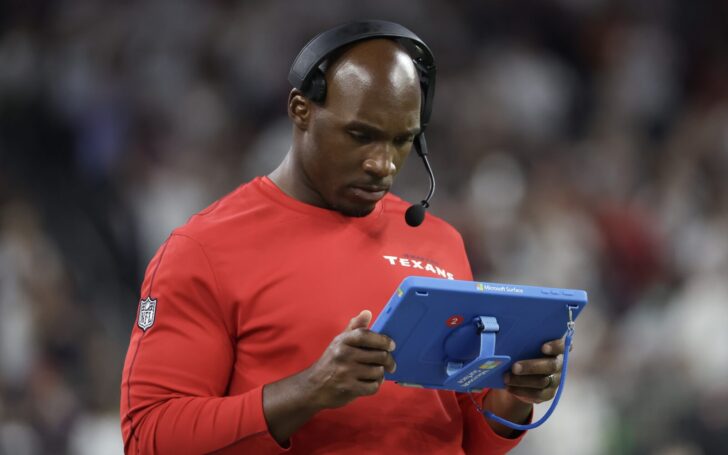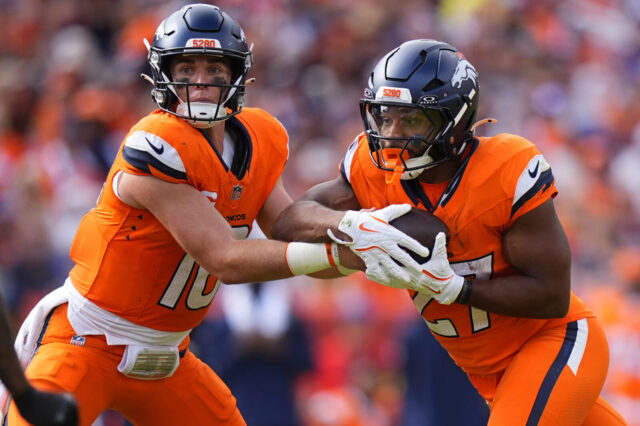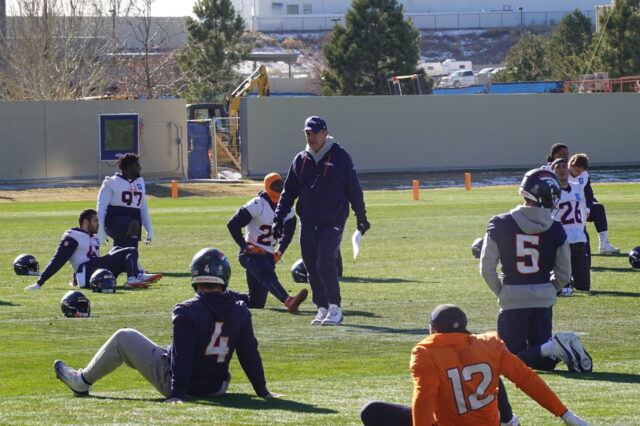NFL and Microsoft announce a partnership in the lead up to the 2025 season: Coaches will be able to use Copilot AI now.
But this teaming up of the two massive businesses seems like nothing more than a publicity stunt.
AI cannot help coaches make real-time decisions on the sideline because it’s not reliable, and it’s unlikely coaches will cede power to a computer.
NFL, Microsoft announce partnership but head coaches can’t rely on AI
AI is all the rage right now, but coaches can’t rely on it being right or even helpful during crunch time on the sidelines.
AI, or LLMs (large language models), have been proven to be inaccurate, wrong, and therefore not trustworthy. They are trained on a certain set of data, and when that data becomes outdated, the AI is no longer current. And sometimes AI just simply hallucinates, or gives wildly wrong answers.
In fact, Microsoft just announced they’ve added Copilot–their AI powered by OpenAI–into Excel Spreadsheets and warn it can give incorrect answers. So, if a team becomes too reliant on AI helping them, they could be bitten when it matters most. Or, the entire system could crash during their most crucial series or game.
In their press release this morning, Microsoft says Copilot can be used on the sidelines during games by coaches to determine what formation an opposing team was in, what happened on a turnover, or to help sort plays by down and distance.
For example, in what formation was the defense when it forced a turnover? An offensive unit can use the SVS and Copilot to filter game-changing moments like that to help gain some insight on why a play turned out the way it did.
Coaches and players already have tablets. Therefore, this isn’t really new or useful on the sideline. They’ve already been able to see what the previous play was, what formation the opponent was in etc. On top of that, Pro Football Focus offers many of the exact same “insights” and has been around for many years.
Another reason why AI won’t help on the sidelines is that head coaches believe they are the smartest football people in the world. And, because of their job title, they basically are.
A head coach like the Denver Broncos’ Sean Payton, for instance, is so much of a control freak that he calls his own plays. Many other head coaches allow the offensive coordinator to call plays, but not Payton.
It’s just not plausible that he will use AI to help him make play calls. Nope. No way.
And if a coach does use AI and loses a game, should he be fired?
For many coaches, NFL stands for “Not For Long.” Losing a game coached by AI would be Absolute Idiocy.
This boils down to marketing AI to a massive demographic: Football fans
Sean McVay is the head coach Microsoft used in their marketing press release today, although there’s no mention if McVay is being paid by the company.
While Payton is the one of the oldest coaches, at 61, McVay is still one of the league’s youngest coaches at 39 years old. So, there is some likelihood the younger generation of coaches could use the technology, albeit small.
“This is a space that we’ve really leaned heavily into,” McVay says. “It’s coming and it’s going to be a valuable tool. You can’t run away from it. This is an opportunity for us to say – in a league that has such small margins of victory week in and week out because of the level of competition – what are some of the ways that we can create edges or win in the margins?”
It should be noted, though, that this is an extremely vague explanation from McVay on how he plans on using the technology during games.
And another possible issue with the AI-powered tablets is the security threat. Not only could one team possibly hack another’s playbook or game plan, but the AI could be gamed to learn about another team’s tendencies.
For instance, one team could ask the AI, “What do the Rams call most often on 3rd and 3?” If the Rams were asking Copilot for play calls on that down and distance, the AI could possibly give the opponent the details they need. LLMs learn from their interactions with users, and they sometimes use that information to answer a different prompt in the future.
It’s why AI’s like ChatGPT and Google Gemini explicitly tell users not to upload any confidential information.
Now, while AI isn’t likely to have any real, measurable impact on the field, there’s certainly some hope it will affect scouting, analytics, and the NFL Draft off the field.
As Microsoft explained:
During the 2025 NFL Combine, scouts and coaches used an enhanced app built with Microsoft Azure AI Foundry to provide more intelligent and real-time insights from more than 300 prospects.
It will be interesting to see how well AI-powered scouting helps NFL teams draft. But that likely won’t be known for many years until the data is compiled.
As for now, the NFL, Microsoft partnership seems like little more than marketing to the massive football-loving demographic.



